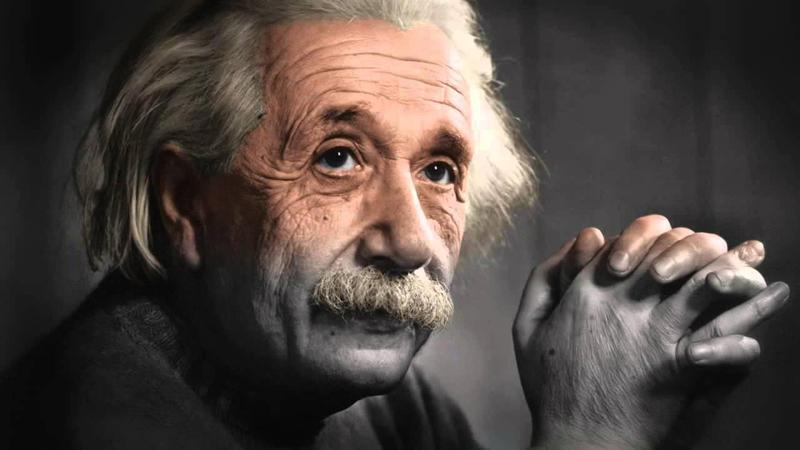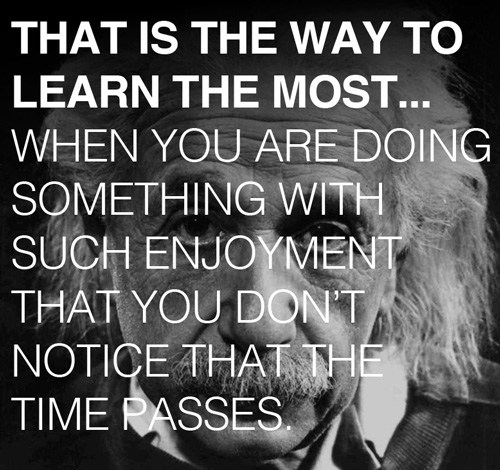The Secret to Learning Anything: Albert Einstein's Technique for Memory Training He Passed on to His SonMar 29, 2018

In 1915, aged thirty-six, Einstein was living in wartorn Berlin, while his estranged wife, Mileva, and their two sons, Hans Albert Einstein and Eduard “Tete” Einstein, lived in comparatively safe Vienna. On November 4 of that year, having just completed the two-page masterpiece that would catapult him into international celebrity and historical glory, his theory of general relativity, Einstein sent 11-year-old Hans Albert the following letter, found in [Posterity: Letters of Great Americans to Their Children — the same wonderful anthology that gave us some of history’s greatest motherly advice, Benjamin Rush’s wisdom on travel and life, and Sherwood Anderson’s counsel on the creative life. Einstein, who takes palpable pride in his intellectual accomplishments, speaks to the rhythms of creative absorption as the fuel for the internal engine of learning:](http:// Posterity: Letters of Great Americans to Their Children

[> My dear Albert,\
Yesterday I received your dear letter and was very happy with it. I was already afraid you wouldn’t write to me at all any more. You told me when I was in Zurich, that it is awkward for you when I come to Zurich. Therefore I think it is better if we get together in a different place, where nobody will interfere with our comfort. I will in any case urge that each year we spend a whole month together, so that you see that you have a father who is fond of you and who loves you. You can also learn many good and beautiful things from me, something another cannot as easily offer you. What I have achieved through such a lot of strenuous work shall not only be there for strangers but especially for my own boys. These days I have completed one of the most beautiful works of my life, when you are bigger, I will tell you about it.
I am very pleased that you find joy with the piano. This and carpentry are in my opinion for your age the best pursuits, better even than school. Because those are things which fit a young person such as you very well. Mainly play the things on the piano which please you, even if the teacher does not assign those. That is the way to learn the most, that when you are doing something with such enjoyment that you don’t notice that the time passes. I am sometimes so wrapped up in my work that I forget about the noon meal…
Be with Tete kissed by your
Papa.
Regards to Mama.
Other Techniques Used by Einstein****1. He daydreamed and contemplated
Who has the right to say what is absentmindedness and what is pure genius? What others labeled as forgetful or even spacey, Einstein knew to be some of his most insightful, creative brainstorming sessions.
2. He Rubbed Shoulders with the Best and Brightest
Especially after his reputation became known, Einstein sought out the instruction and mentorship of the smartest people in his field, like Max Planck. If he didn’t get to know these people personally, he studied their writing and research.
3. Einstein Cross-Trained
He learned to play the violin well and loved the mathematical structure of music. He used music as a “psychological safety valve” throughout his life.
4. He Trusted His Own Curiosity
One legendary story says that his father gave him a compass when he was five years old. After lengthy observation, Einstein figured out that some outside force was acting on the needle to keep it pointed in the same direction.
5. He Maintained a Deep Suspicion of Educational Authority
Too many teachers, even in our day, feel you should believe what they say because, “I said so.” While they claim that “thinking for yourself” is part of the curriculum, their own biases and the school system’s structure discourage independent thought.
6. Einstein Nourished a “Radical Inquiring Attitude”
A Chinese proverb reads, “He who asks a question is a fool for five minutes; he who does not ask a question remains a fool forever.” True learning requires exploring assumptions and other facts that many take for granted.
7. Einstein Designed His Own Curriculum
He had friends at the university take notes in class for him while he was away reading his preferred “extracurricular” books or journals on physics and mathematics.
8. He Relied on Faith to Learn
Einstein’s faith was that by inquiry and discipline you could learn things about invisible objects or phenomena. His “God” was not arbitrary and conformed to natural, discoverable laws.
9. He Avoided Preoccupation with Trivial Things in Life
How much time would Einstein spend on YouTube or Facebook if he were around today? His mind reverted consistently to “exploring and understanding the physical world.” What do you think about when you have nothing else to think about? Einstein’s discoveries didn’t come easily; they came from discipline!
10. Einstein Was an Autodidact
As one biographer (Ronald W. Clark) wrote, he “found his real education elsewhere, in his own time.” Schooling provided the basic building blocks of language and concepts, but Einstein’s initiative took his learning far beyond the limits of academics. So we see that Einstein maintained a habit of making his own decisions about what he would read and study. He didn’t let other people make those decisions for him.
How can you apply these principles and attitudes about learning to your own situation? How can Einstein’s habits help you improve your career, grow your business, and enhance your marketable skills?](http:// Posterity: Letters of Great Americans to Their Children)
Be the first to post a message!
